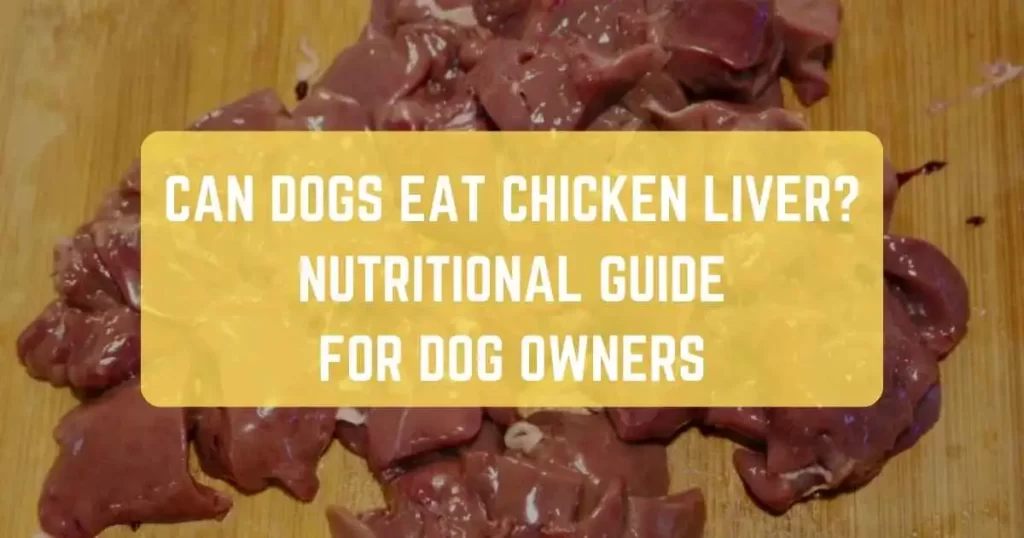
In the world of our four-legged companions, a canine’s curiosity often knows no bounds, and their charming puppy eyes can make even the most vigilant owner question what’s safe for them to eat. Among the culinary conundrums is the ever-enticing chicken skin.
You see, while dogs can eat chicken skin, there’s an intricate tale of benefits and perils hidden beneath that delectable surface. This guide will unravel the delicious mystery, from the sizzling delights of cooked chicken skin to the potential risks that lurk beneath its golden facade.
So, hold onto your leash, for everything you need to know about your dog’s raw or cooked chicken indulgence is just a few paw prints away.
Can Dogs Eat Chicken Skin?
Yes, dogs can eat chicken skin, but it should be in moderation and as an occasional treat due to its high-fat content. Excessive consumption can lead to obesity and pancreatitis. Always ensure there are no bones or harmful seasonings, and opt for boneless, cooked chicken skin if you choose to share with your pet.
Benefits of Chicken Skin For Dogs
Chicken skin, when consumed in moderation and as part of a balanced diet, can offer a few advantages to your furry friend. Here are some benefits:
- Taste Sensation: Dogs love the taste of chicken skin, and it can be a special treat for them.
- High in Protein: Chicken skin is rich in protein, which is essential for your dog’s muscle development and overall health.
- Nutrient-rich: It contains essential nutrients like vitamins B3 (niacin), B6, and phosphorus.
- Healthy Fats: While it’s high in fat, it provides healthy fats that can be beneficial for your dog’s skin and coat.
- Apt for Training: Small pieces of skin can be a great training reward due to their appealing taste.
Potential Risks of Chicken Skin For Dogs
Despite these benefits, chicken skin can pose certain risks to dogs. It’s crucial to be aware of the potential downsides:
- High-Fat Content: Chicken skin is notably high in fat and calories, which can lead to obesity if consumed excessively.
- Pancreatitis: Excessive fat consumption can cause inflammation of the pancreas, leading to pancreatitis in dogs, a painful and serious condition.
- Gastrointestinal Issues: The fat in the skin can upset your dog’s digestive system, resulting in diarrhea and vomiting.
- Salmonella Risk: Raw chicken skin can carry harmful bacteria like salmonella, which poses health risks to both your dog and your family.
- Choking Hazard: If not cut into small, manageable pieces, chicken skin can present a choking hazard, particularly for small dogs.
What To Do If My Dog Ate Chicken Skin?
Accidents happen, and sometimes your pup may sneak a piece of chicken skin when you’re not looking. If you’re wondering what to do when this occurs, here are some steps to follow:
- Assess the Quantity: Determine how much skin your dog consumed. A small piece may not cause any issues, but larger amounts can be problematic.
- Monitor for Symptoms: Keep an eye on your dog for signs of gastrointestinal distress, such as vomiting or diarrhea.
- Check for Bones: Ensure that there are no bones as these can be hazardous.
- Hydration: Offer plenty of fresh water to prevent dehydration if your dog experiences diarrhea.
- Contact Your Veterinarian: If you have any concerns about your dog’s health or if they consumed a large amount, it’s best to consult your vet for guidance and evaluation. They can provide personalized advice based on your dog’s specific situation.
What Should You Do If Dogs Eat Chicken Skin?
If your dog has a penchant for sneaking chicken skin or you occasionally share it with them, there are precautions you can take to minimize risks and ensure their safety:
- Feed in Moderation: It’s okay to give your dog small amounts of cooked chicken skin as an occasional treat, but avoid making it a regular part of their diet.
- Remove Bones: Always ensure that the chicken skin is bone-free. Chicken bones can splinter and cause choking or internal injuries.
- No Fried Food: Never give your dog fried chicken skin or any fried food, as it’s not only high in unhealthy fats but also poses a higher risk of pancreatitis.
- Consider Boiled Chicken: If you’d like to treat your dog to chicken, consider boiled chicken breast without the skin as a cleaner and safer option.
- Monitor Portion Size: If you decide to feed your dog chicken skin, keep the portion size small, and be aware of your dog’s overall fat intake.
- Variety is Key: While dogs may love the taste of chicken, it’s essential to maintain a balanced diet that includes a variety of proteins and nutrients.
Alternatives to Chicken Skin For Dogs
If you’re concerned about the risks of chicken skin or just want to vary your dog’s diet, consider these alternatives:
- Lean Meats: Opt for lean meats like turkey or chicken breast without the skin as a source of protein.
- Fish: Dogs can enjoy fish like salmon or mackerel, which are high in omega-3 fatty acids and great for their skin and coat.
- Vegetables: Some vegetables like carrots and green beans can be a healthy and low-calorie treat for dogs.
- Commercial Dog Food: High-quality commercial dog food is specifically formulated to meet your dog’s nutritional needs.
- Raw Diet: Some pet owners choose to feed their dogs a raw diet, but this should be done under the guidance of a veterinarian or a pet nutritionist.
Final Thoughts
In conclusion, when it comes to feeding your dog skin of chicken, it’s best to exercise caution and moderation. While dogs can eat the skin of chicken in small amounts, it’s essential to be aware of the potential risks, particularly its high-fat content and the risk of pancreatitis.
As responsible pet owners, it’s crucial to prioritize your dog’s health and well-being by providing a balanced diet and avoiding any harmful foods. If you’re ever in doubt or if your dog displays any concerning symptoms after consuming skin, don’t hesitate to consult your veterinarian for guidance and support.
Your pup’s health should always be the top priority, and a well-balanced diet is key to keeping them happy and healthy.
Frequently Asked Questions
Can Dogs Eat Raw Chicken Skin?
Yes, dogs can eat raw chicken skin, but it’s not recommended. Raw chicken skin may carry harmful bacteria like salmonella, posing health risks to your dog and your family. It’s best to avoid it to ensure your dog’s safety.
Can Puppies Eat Chicken Skin?
No, puppies should not eat chicken skin. It carries a risk of salmonella and other harmful bacteria. Stick to cooked, boneless chicken if you want to include chicken in their diet, and ensure it’s well-cooked to prevent any health risks.
Can Dogs Eat Chicken Skin Boiled?
Yes, dogs can safely consume boiled chicken skin in small, well-cooked amounts. It’s essential to remove any bones, as they can pose a choking hazard or cause internal injuries. Ensure it’s a rare treat and not a regular part of their diet.
Can Dogs Eat Baked Chicken Skin?
No, feeding your dog baked chicken skin is not recommended. While it’s less fatty than fried skin, it can still lead to digestive issues like diarrhea and vomiting, making it best to avoid it altogether to keep your dog’s health in check.
Can Dogs Eat Fried Chicken Skin?
No, dogs should not eat fried chicken skin. It is high in unhealthy fats and can lead to digestive issues, obesity, and even inflammation due to the excessive fat content. It’s best to avoid giving your dog fried skin altogether.









